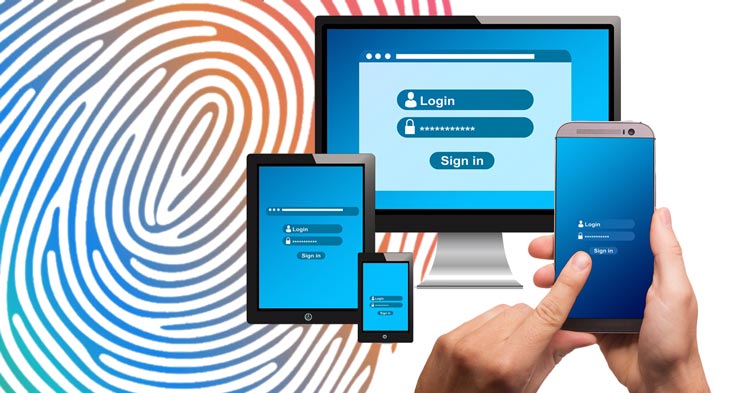Accessing the digital assets of a loved one after they have passed can be difficult. Below are some tips to make it easier for everyone.
In the age of Covid-19, most of us do everything electronically. Banking, communicating, paying bills, shopping, storing important papers, photos and contacts, filing taxes, keeping a calendar and reminders, sports betting, dating….the list goes on. But where does all of that electronic content go and who can access it for me? What happens if I go on an “extended vacation” - physically, mentally or permanently? Well, things can get messy if you’re not prepared. An estate attorney can support you, however, with your efforts.
I used to tell my partner (half-jokingly) if anything happened to me, to keep my thumb so he could open my phone and computer, to gain access to my accounts/passwords (digital assets) with my fingerprint. Unfortunately, that plan won’t work with the upgrade to facial recognition security, unless he wants to face some tough questioning by the police. And not to mention, the Criminal Fraudulent Access Act prohibits the impersonation of a decedent. So what is he supposed to do when clues of assets and liabilities no longer come through the mail and there is no way to do a global search of assets?
In comes the Revised Uniform Fiduciary Access to Digital Assets Act (RUFADAA), effective January 19, 2021, with a default rule, to help address the frequent challenges fiduciaries (trustees) encounter in accessing the digital assets of a Ward or Decedent.
What is a digital asset?
A digital asset is defined as an electronic record that an individual has a right to or interest in, but not the underlying asset itself (unless we are talking about Bitcoin and the like). For instance, my online bank statement is a digital asset, but the money in the account is not.
The default rule under RUFUDAA, provides methods for a fiduciary to access a catalog of electronic communications and other types of digital assets, but not the content.
What is a catalogue of electronic communication?
A catalog of electronic communication “identifies” the person communicating and the electronic address, along with the date and time of the communication. The substance of the communication is not accessible under RUFUDAA.
How can you access a catalogue of electronic communication of a decedent?
In order for a fiduciary to access the content of electronic communications (documents, photos, emails, basically any information concerning the meaning of the communication stored electronically), the user must specifically do so by an online tool (Facebook and Google have these tools) or in an estate planning document.
What if the online tool and estate documents don’t match?
If the online designations conflict with the estate planning documents, the online designation controls. More importantly, the Custodian’s Terms of Service will control what the fiduciary may or may not do with your digital assets.
Tips for legacy planning of your online accounts
Google.
For accounts that have legacy planning, like Google and Facebook, designate a person who can access your data. You can customize the information you want to share, with up to 10 people, if your account is inactive for a designated period of time (3-18 months).
Facebook.
Under memorialization settlings, you can designate a legacy contact who can manage your account after you pass away.
Financial Powers of Attorney.
Have your Financial Powers of Attorney updated to provide your Agent with authority to specifically access digital asset content.
Wills and/or Trusts.
Update these documents to provide your fiduciary with authority to specifically access digital asset content.
- If you find yourself in Orphans’ Court on a guardianship matter, make sure to include language requesting Custodians of digital assets to disclose a catalogue of electronic communications and digital content to the Guardian of the Estate of the Incapacitated Person, in the proposed Order.
Write it down.
As an estate attorney, I give all of my clients the same homework assignment- which always starts off with “Make a binder with the below outline in mind. Identify automatic debits and payments and keep an inventory of digital and cybersecurity assets. Keep a hard copy and a digital copy, and give your estate planning attorney a copy to secure in the law firm’s vault.
The binder should include:
- A list of logins and passwords for each of your devices (phone, tablet, watch etc.)
- A list of all online accounts with user names and passwords
Banks (brick & mortar and online banks) - Social media
- Snapchat
- TikTok
- Email addresses
- Online shopping sites
- Online Bill Pay
- Utilities
- Phone
- Internet
- Payment Services
- Paypal
- Venmo
- Google Pay
- Stripe
- Square
Talk to Our Estate Planning Attorneys
Estate planning is an essential task regardless of your assets. Our estate planning attorneys are here to help. We can work with you to draft critical estate plan documents like a POA, will, living will, and more. Give our local law offices a call. We represent clients in Bucks, Montgomery, and Philadelphia counties.
